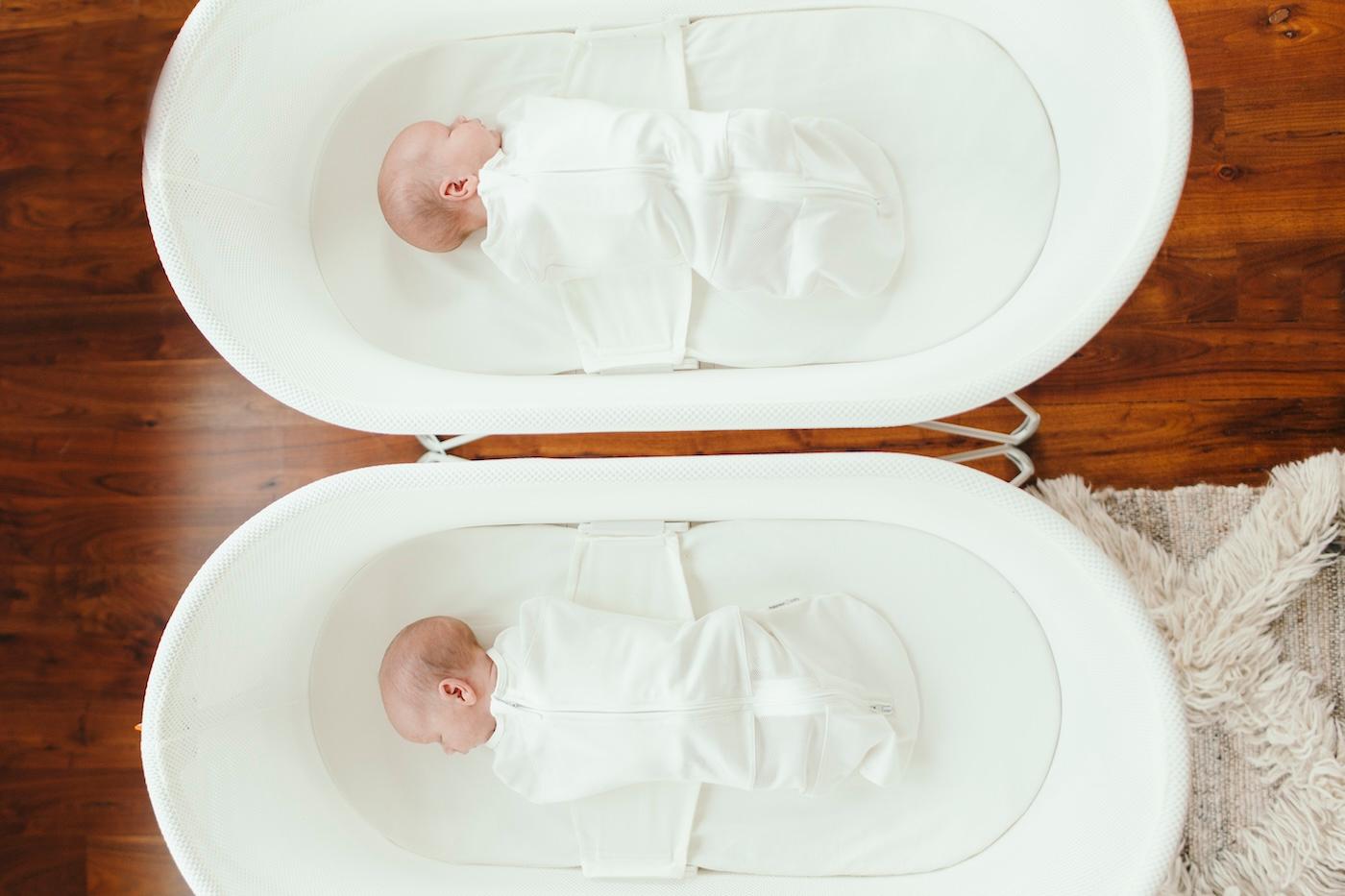PREGNANCY
Is Eating Fish Safe During Pregnancy?
From salmon to sushi to tuna sandwiches: Can you eat fish during pregnancy? Here, what you can—and cannot—eat while pregnant. (And which fish should top your list!)

Written by
Gabrielle McPherson, MS, RDN, LDN

Let us clear the murky waters: Seafood, which includes fish and shellfish, is a wonderful, highly nutritious, heart-healthy food choice to enjoy...and that is especially so during pregnancy! (As long as you do not have a seafood allergy, of course.) Research shows that eating a fish during pregnancy may boost your baby's brain development. But even with all of that, a lot of mums-to-be receive confusing or conflicting guidance on eating fish during pregnancy. So, if you are asking yourself questions like, Can you eat fish while pregnant? Is sushi safe during pregnancy? Can I eat tuna while pregnant? Or What fish is not safe during pregnancy?, you are in luck! Here is everything you need to know about eating fish during pregnancy, so you and your baby get all the benefits—safely.
Health Benefits of Eating Fish During Pregnancy
Seafood offers so many must-have nutrients for expecting mothers and developing babies. Depending on the type of fish, you will find varying amounts of good stuff like protein, healthy fats, vitamin D, calcium, iodine, and iron…all important nutrients that pregnant folks need more of. Here is why they are important:
Fish helps prevent anemia in pregnancy.
Iron is a key nutrient that helps red blood cells deliver oxygen to your baby, which buoys their growth and brain development. But because you need double the amount of iron than you used to, iron deficiency anemia during pregnancy is quite common—and it can put you and your baby at a higher risk for complications, like preterm birth and low birth weight. Plus, an infant’s iron status from birth to 6 months old is entirely dependent on Mum’s iron intake while pregnant. Iron-rich seafood like clams, mussels, oysters, salmon, sardines, and shrimp can really help with prevention.
Healthy fats in fish aid baby’s brain development.
Fish is chock-full of heart-healthy omega-3 fatty acids, like EPA and DHA, which are vital for your baby’s brain growth and function during pregnancy. And research shows that a higher intake of omega-3-rich fish during pregnancy is associated with a reduced risk of preterm birth. While you can get omega-3s from other eats, fish is the richest food source of EPA and DHA. Some pregnancy-safe options include anchovies, halibut, herring, mackerel, rainbow trout, salmon, sardines, and canned light, albacore, and yellowfin tuna. (See below for how-much-to-eat guidance.)
Iodine is crucial for baby’s speech and hearing.
The oft forgotten mineral iodine is responsible for maintaining good thyroid function, helping with your baby’s overall growth and their brain, speech, and hearing development. Iodine is so vital, in fact, that severely low levels can lead to significant pregnancy complications, such as hypothyroidism. While the average adult needs 150 micrograms of iodine daily, that bumps to 220 for those who are pregnant. Good thing pregnancy-safe cod, scallops, shrimp, and canned light, albacore, and yellowfin tuna are all brimming with iodine.
Fish is a healthy lean protein.
When pregnant, you need between 70 and 100 grams of protein a day...which is a lot more than your pre-pregnancy requirement of about 46 grams daily. Protein is essential for your baby-to-be’s cell growth and function, which means they simply cannot make hair, skin, nails, muscles, organs, tissues, and more without protein. (Plus, protein may also help your breast and uterine tissue grow during pregnancy.) But not all protein is the same. It is best to swap much of your red and processed meats, which are high in saturated fat, for lean proteins, such as, you guessed it…seafood.
Fish has vitamin D and calcium that support baby’s bones and teeth.
Vitamin D and calcium are crucial nutrients that depend on one another to support healthy bones and teeth—even in utero. (Vitamin D is necessary for immune health, too.) But unfortunately, vitamin D deficiency is common during pregnancy, especially among vegetarians, mums-to-be who live with limited sun exposure, and those with darker skin, notes The World Health Organization (WHO). While few foods naturally contain vitamin D, fish bones in canned fish are loaded with vitamin D and calcium—and are often soft and easy to eat. Some D- and calcium-rich choices include herring, perch, rainbow trout, sardines, salmon, and tuna (light and skipjack).
The Risks of Eating Fish During Pregnancy
There is a lot of fish in the sea, as they say, and some are among the foods to avoid during pregnancy. Nearly all fish contain some mercury, a heavy metal that can be harmful to the brain, spine, and nervous system of a developing baby, leading to toxicity and birth abnormalities. That is why it is important to eat low-mercury fish during pregnancy. (More on that below.) At the same time, it is harder for an expecting mum's immune system to fight off infections. Because of this, you should avoid raw, undercooked, and cold-smoked fish to reduce your risk of infection from harmful germs, parasites, and bacteria, including Listeria. That said, it is okay to eat smoked seafood if it is an ingredient in a cooked dish. And canned and shelf-stable versions of these fish are also okay.
What Fish is Recommended During Pregnancy
The NHS recommends that pregnant individuals strive to eat 2 servings a week of fish. That shakes out to 225 grams in total. But there are guidelines to ensure mercury levels are low, bacteria are kept to a minimum, and mum and baby reap all the rewards without any drawbacks. Here is a list of safe fish during pregnancy:
Safe Fish During Pregnancy
These are low mercury fish than can—and should—be consumed 2 to 3 times a week:
Safe Once-a-Week Fish During Pregnancy
Eat no more than 170 grams of the following options a week:
Albacore (white) tuna
Halibut
Striped bass (ocean)
Bluefish
Mahi mahi
Yellowfin tuna
Chilean sea bass
Monkfish
Grouper
Snapper
Unsafe Fish During Pregnancy
These picks clock the highest mercury levels or are served raw and should be avoided during pregnancy:
Safest Way to Eat Fish During Pregnancy
The best fish to eat while pregnant should be low in mercury and thoroughly cooked to be safe. You know your fish is safe when it has reached an internal temperature of 63 degrees Celsius. (Clams, mussels, and oysters are not fully cooked until their shells open.) It is also important to remember what a serving size looks like. A typical portion size of fish is 115 grams, which is the same size and thickness as the palm of your hand.
Tasty Ways to Eat Fish During Pregnancy
Stuck on how to get all of the fish you need in? Hopefully, these meal ideas will help:
- Homemade salmon patties with sweet potato fries
- Tuna salad and whole wheat pita
- Shrimp puttanesca over whole wheat pasta
- Grilled shrimp or canned salmon over an arugula salad
- Air-fried garlic tilapia with roasted potatoes and asparagus
- Baked lemon butter cod with steamed broccoli and wheat pasta
- Anchovy pizza
- Fish tacos made with grilled or blackened tilapia with mango black bean salad
- Whole wheat spaghetti with canned tuna and olives
- Oven-baked or air-fried cod and chips
- Mussels and clams in marinara over whole grain pasta
Disclaimer: The information on our site is NOT medical advice for any specific person or condition. It is only meant as general information. If you have any medical questions and concerns about your child or yourself, please contact your health provider. Breastmilk is the best source of nutrition for babies. It is important that, in preparation for and during breastfeeding, mothers eat a healthy, balanced diet. Combined breast- and bottle-feeding in the first weeks of life may reduce the supply of a mother's breastmilk and reversing the decision not to breastfeed is difficult. If you do decide to use infant formula, you should follow instructions carefully.
SHARE THIS ARTICLE
PARENT PICKS
Bestsellers
More on Pregnancy
About Gabrielle McPherson, MS, RDN, LDN
Gabrielle McPherson, MS, RDN, LDN is registered dietitian in Missouri who specializes in community and pediatric nutrition. Gaby is passionate about encouraging families to eat well in simple, practical ways that are realistic...and delicious! When not working, Gaby loves cooking, baking, and making messes and memories with her sous-chef/preschooler Charlotte.



















